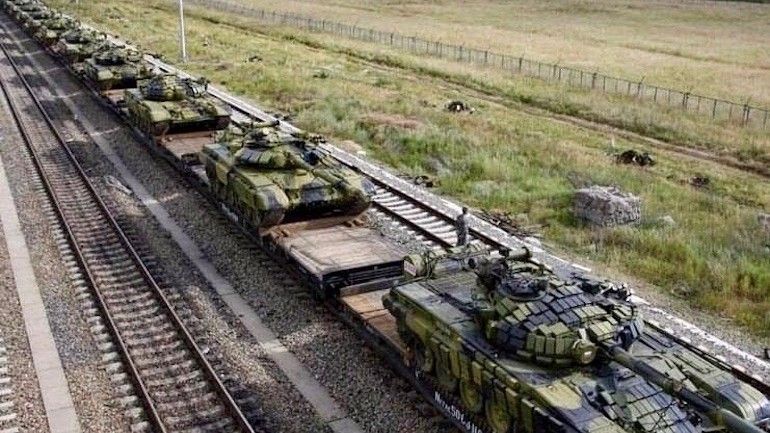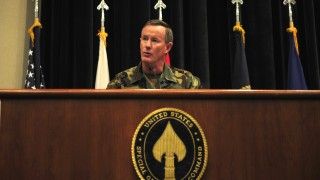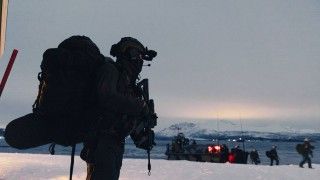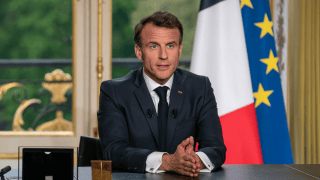- WIADOMOŚCI
- ANALIZA
Major Deployment of Russian Equipment to Belarus – Expected in 2017. Exercise, aggression or a new military base?
Russian Ministry of Defence is planning, during the year 2017, to deploy 80 times more soldiers to Belarus, as compared to the preceding years. Officially, the said initiative is related to the “Zapad-2017” exercise which is scheduled to take place next year, nonetheless, the Belarusian opposition suggests that the movement may constitute a prelude for taking over military control over the country, launch aggression against Ukraine, Baltic states, or against Poland.

The information pertaining to the planned steps which are to be taken in Belarus, somewhat concerning, has been made widely available within public documents, related to the next year’s contracts. As usually, the Ministry of Defence has started a tender, regarding the international military railway cargo services. Briefly speaking, the aforesaid contracts refer to transport of equipment and military materials on special purpose trains.
According to the Belarusian media, back in 2015, the contract concerning the railway transportation to Belarus included 125 carriages, with only 50 carriages expected to be contracted in 2016. On the other hand, the same contract referring to the year 2017, includes transport services which are to involve 4126 carriages, more than 80-fold more, than this year. The comparison above makes one realize the scale of operations which are to be undertaken by the Russian forces, within the territory of Belarus, next year.
Russian Ministry of Defence calms the analysts down, informing that the transport operation is related to the “Zapad 2017” military exercise, regularly involving the armed forces of both nations. This time, as it was announced by Sergey Shoygu, at the beginning of November, “when the scenario concept for the exercise is being developed, the situation related to increased NATO activity at the border of the Union State is going to be taken into account”. However, the transport needs indicate that the Russian forces are going to deploy a number division-sized units, to take part in the operation.
Some Belarusian activists and members of the opposition suggest that exercise of so expansive scale would lead to permanent deployment of Russian military units within the territory of the country. They directly suggest that some of the forces of the 1st Guards Tank Army formed back in 2014, stationed within the area of the Western Military District, would be deployed to Belarus. The newly formed Army-sized element is tasked, as the Russian MoD suggests, with protecting Moscow from a threat posed by Baltic States, Finland and Belarus’s neighbours. The said unit continues the traditions of the 1st Guards Tank Army which, during the Cold War, was stationed in East Germany and which was disbanded in 1998.
The Russian forces, deployed with the use of four thousand train carriages, stationed in Belarus could be potentially tasked with establishment of a permanent military base, or with launching aggression against northern Ukraine, Baltic States, or even Poland.
Potential aggression seems to be unlikely, however, it cannot be ruled out that as a result of the political, economic and military actions, Russia could be planning to force Lukashenko to host large and significant Russian military units, permanently. These units, considering the Russian defence policy and propaganda, could become a tangible response to the NATO forces and the US mechanized brigade, which is to be stationed in Poland. Certainly, presence of the Russian troops, or such possibility, would be seen as additional reinforcement of the alliance between the Kremlin and Minsk. Throughout the recent years, the Belarusian authorities took steps, the aim of which was to gain some distance from the Ukrainian crisis and the conflict between Kiev in Moscow, however it seems that options of establishing a stance which would be more independent are becoming more and more limited. It has also been shown by the latest declarations made by President Lukashenko, who stressed, within his statement, that “Terrorism and armed conflict are the things that are shocking to the world”. The President of Belarus then stated that he was discussing these issues with Putin, and that a common ground exists within that scope, between him and the Russian leader. The President of Belarus added that no discrepancies, when it comes to the international policy, exist between the two states.















